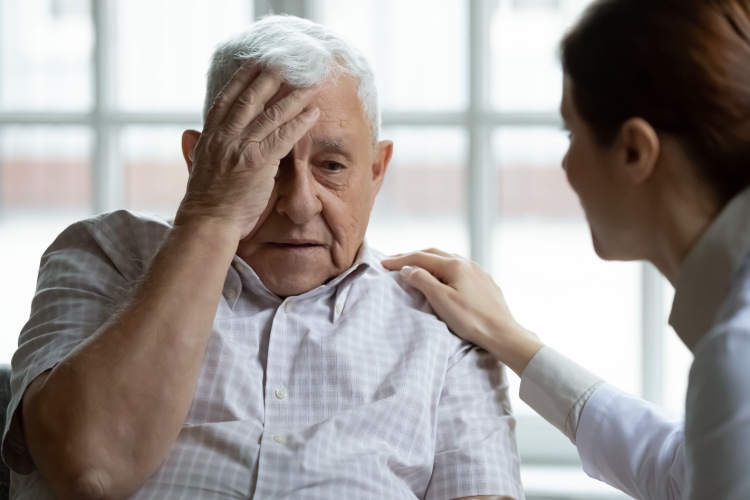
Many parents of young children often dread the notorious “witching hour”, the period of increased fussiness and crankiness that usually lasts an hour or two before bedtime. Now, caregivers of elderly relatives are having to combat “sundowning syndrome”, a set of symptoms characterized by increased confusion, agitation, and restlessness that typically occur in the late afternoon or early evening in elderly individuals, most notably those with dementia. Assisted Living Home Care Services, a family-owned home care agency in Cheshire, Westport and Putnam, is helping family caregivers and its caregiving employees cope with the condition by offering insight into symptoms, potential triggers and tangible tips on creating a peaceful night for all involved.
“Originally called ‘senile nocturnal delirium’ by doctors and scientists back in 1941, ‘sundowning syndrome’ is just now becoming a popular phenomenon in modern families as their elderly loved ones live longer and more are being diagnosed with dementia,” said Mario D’Aquila, MBA and chief operating officer at Assisted Living Home Care Services. “It’s important to note that ‘sundowning syndrome’ is not a disease, but rather a collection of symptoms that can occur when the daylight fades and thus, can be managed with proper non-medical caregiving methods.”
According to the Mayo Clinic, ‘sundowning syndrome’ is more common in individuals with dementia, including Alzheimer’s disease, which afflicts an estimated 80,000 seniors in Connecticut. While the exact cause isn't fully understood, potential factors include changes in the brain's internal clock, fatigue, low light, and disruptions to familiar routines. Additionally, pain, illness, or infections can also worsen sundowning symptoms. If not identified and managed properly, the condition can severely impact sleep and overall well-being in both the elderly person and specific caregiver.
D'Aquila warns that if a senior loved one begins to exhibit disruptive behaviors, such as wandering, pacing, rocking in their chairs or becoming more anxious, fearful, irritable or confused around sunset, they are most likely experiencing ‘sundowning syndrome.’ Likewise, some individuals may have visual or auditory hallucinations, become suspicious or may have difficulty falling and staying asleep, further exacerbating symptoms.
Maintaining a regular schedule - creating predictable routines for meals, activities, and bedtime can help reduce sundowning, while limiting daytime napping, caffeine, sugar and alcohol.
Ensuring adequate light and exposure to daylight - spending time outdoors or near windows during the day can help regulate the body's internal clock and reduce evening confusion, while supporting nighttime sleepiness. Shutting the shades in one’s house at the start of sunset can also alleviate the intensity of the condition.
Creating a calming environment - using calming music, like relaxing sounds of nature, familiar objects, and reducing background noise in the evening can help reduce anxiety and agitation. Turning on a night light and turning off TVs can also be of great benefit.
Providing gentle reassurance - reassuring the person that they are safe and loved can help reduce fear and agitation. If the senior is in a strange or unfamiliar setting, bring familiar items, such as photographs and favorite objects.
Consulting with a healthcare professional - if sundowning becomes a significant problem, consulting with a doctor or dementia specialist can help determine the best course of action since a urinary tract infection or sleep apnea could be exacerbating the condition, especially if it comes on quickly.
Lastly, some research suggests that a low dose of melatonin may help ease sundowning. Melatonin is a naturally occurring hormone that induces sleepiness. It can help when taken alone or in combination with exposure to bright light during the day.
“Sundowning is a complex issue, and its severity and management can vary from person to
person,” concludes D’Aquila. “It's important to work with a healthcare professional and properly trained caregivers to find strategies that are most effective for the senior individual.”
For more information on the various forms of dementia, which can lead to an elderly person suffering from ‘sundowning syndrome’, visit: https://www.assistedlivingct.com/resources/various-types-of-dementia/